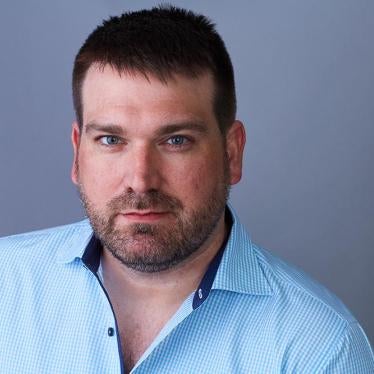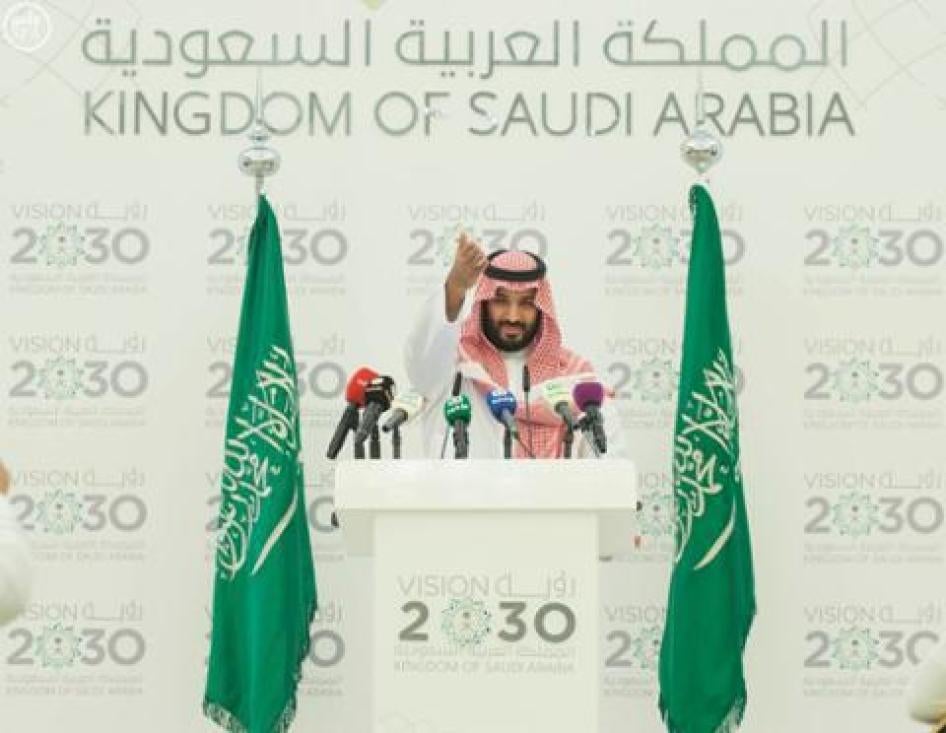Mohammed bin Salman, the fast-rising 30-year-old Saudi Arabia deputy crown prince, is due in Washington this week for talks on regional security and his plan for economic reform.
Central to these discussions will be Vision 2030, his effort to confront the Saudis' looming economic challenges, and the Saudi-led military campaign in Yemen, which he leads as the country's defense minister. Prince Mohammed – “MBS” in policy circles – has been the face of both efforts, issuing policy pronouncements at a frenetic pace. Yet the young prince has failed to address some crucial issues about both Vision2030 and the Yemen war; crucial issues that should be raised during this week's discussions in the US.
The ambitious economic plan, announced in April, hopes to increase both investment and productivity in Saudi Arabia. One of the specific goals of the plan is to “increase women's participation in the workforce from 22 percent to 30 percent.” But the plan ignores the systematic discrimination that prevents Saudi women from fully participating in Saudi public life or its economy.
Women are encouraged to work, but aren't allowed to drive themselves to the office. Government scholarship programs encourage women to study abroad, but require them to take a male relative with them when they go. Women are meant to contribute to society, but are treated as legal minors by the male guardianship system, and required to have their guardian's permission for a range of critical life decisions, from traveling abroad to marrying.
Unless Prince Mohammed begins to undo this highly discriminatory system, Washington and U.S. business leaders should remain skeptical of whether Saudi Arabia can live up to its lofty promises of economic transformation. Without major changes, Prince Mohammed's economic dreams seem unlikely to be fully realized.
The Saudi-led coalition's ongoing military campaign in Yemen has been an unmitigated disaster for Yemeni civilians. According to the U.N., at least 3,500 civilians have been killed since March 2015, the majority by coalition airstrikes. Human Rights Watch alone has documented 43 coalition airstrikes, some of which may amount to war crimes, that have killed at least 670 civilians, including close to 200 children, and 16 attacks in which internationally banned cluster munitions were used, wounding at least 66 civilians and killing at least 19.
Despite the carnage, Saudi Arabia and its coalition have resisted any accountability for unlawful attacks in Yemen. The U.S., by providing intelligence and other direct support to the coalition, is also a party to the conflict, but has likewise taken no steps to investigate apparently unlawful attacks in which it took part.
Saudi Arabia, in fact, seems intent on avoiding responsibility at every turn, exhibited stunningly by its actions at the U.N. The kingdom successfully blocked a U.N. Human Rights Council resolution in October to create an independent international inquiry into alleged abuses by all sides in Yemen. Then, just this month, Saudi Arabia brazenly threatened the U.N. secretary-general with halting millions of dollars in funding for U.N. programs unless he removed the coalition from his annual “List of Shame” for the coalition's role in “killing and maiming” Yemeni children. Despite overwhelming evidence documented by the U.N. itself, Human Rights Watch and other groups, the secretary-general buckled.
With greater reporting of coalition violations, it appears that some in the U.S. may be questioning the conduct of the campaign. The U.S. is continuing to sell bombs and other arms to Saudi Arabia despite having knowledge they could be used in further unlawful attacks, but Sens. Chris Murphy (D-Conn.) and Rand Paul (R-Ky.) have introduced bipartisan legislation that would suspend certain munitions transfers until the U.S. president has certified that Saudi Arabia has “demonstrated commitment to fighting terror and protecting civilians in Yemen.” And the Obama administration itself quietly halted transfers of its CBU-105 cluster munitions to Saudi Arabia, sparing civilians from this indiscriminate weapon.
These steps, while a start, are not nearly enough. The U.S. should investigate allegedly unlawful attacks in Yemen in which it took part. It should also urge support for an independent international investigation into violations by all the parties.
With Prince Mohammed's arrival in Washington, U.S. policymakers and business leaders will be meeting a man who could be directing Saudi policy for decades to come. President Obama has already praised the deputy crown prince as “knowledgeable, very smart” and “wise beyond his years.”
Yet based on Prince Mohammed's record, Washington and U.S. business leaders should be wary about his commitment to pushing the reforms necessary to produce bold, transformative change in Saudi Arabia or taking the steps required to ensure victims in Yemen receive the justice they deserve.









